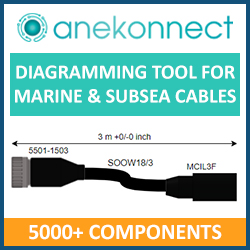ABSTRACT SUBMISSION DEADLINE EXTENDED TO APRIL 1!
CALL FOR SPEAKERS
An abstract of 200 to 500 words should be uploaded via the link below may include one or two illustrations or photo images. Your contribution should be of technical, not promotional nature. Abstract submissions will open on November 6, 2023, and must be received by March 22, 2024 April 1, 2024, to be considered. Authors will be notified of abstract status shortly after receipt.
2024 Workshop Theme - “Building On the Past and Reaching for the Future"
FORMAT:
The Speaker Program will be organized on focused topical sessions consisting of 20-minute power-point presentations followed by a question and answer panel discussion. Topics include, but are not limited to:
LONG-TERM OBSERVING SYSTEMS:
- NOAA: PMEL/AOML, NDBC and CO-OPS
- US IOOS Regional updates
- Ocean Observatories Initiative (OOI)
- JAMSTEC
- Australia/New Zealand – CSIRO, IMOS, AIMS
- China State Oceanic Administration (SOA), FIO
- Institute of Oceanology, Chinese Academy of Sciences (IOCAS)
- National Taiwan Univ. (NTU)
BUOY AND MOORING DESIGN:
- Buoy Design and Analysis
- Mooring Riser Elements - Cables and Terminations
- Moored System Failures – and Lessons Learned
- Novel/Specialized Mooring Configurations
- Modeling of Mooring Systems
- Low-Impact Moorings for Environmentally Sensitive Sites
- Deployment techniques, Operations and maintenance (O&M)
RELIABILITY AND HARSH ENVIRONMENTS:
- Surviving Through the Air-Sea Interface
- Cold Climate Systems: Arctic and Antarctic Ice Buoy Systems and Components
- Service Life Prediction and Testing of Key Components
- Continuous Improvement – Building on Successes and Learning from Failures
- Storms (Hurricanes, Typhoons, etc.)
- High Currents (Gulf Stream, etc.)
- Shallow Water
- Big Waves
- Biofouling
POWER:
- Mooring Power Systems
- Prediction, Modeling, Management, and Control
- Solar Power Generation
- Wind Power Generation
- Marine Hydrokinetics – Power from Waves and Currents
- Energy Storage – Battery Systems
DATA:
- Data Collection, Storage, and Retrieval – from Seafloor to Surface
- Mooring Telemetry: Cabled, Inductive, Subsea RF, Acoustic, Optical, other
- Shoreside Telemetry: Line of Sight RF, VHF, Cellular, Satellite, etc.
- Adaptive sampling, Machine Learning, Artificial Intelligence
ECOSYSTEMS MONITORING:
- Monitoring technologies for Coastal processes
- Water Quality/eDNA Sampling
- Harmful algal blooms (HABS)
- Marine mammal monitoring
- Fisheries acoustics
- Offshore Wind Development – Environmental Monitoring
SENSORS & INSTRUMENTATION:
- Physical Oceanography: Currents, Meteorology, Air-Sea Interaction, Waves
- Sensors for Biology, Chemistry, Geology
- Acoustics: Passive Acoustic Monitoring (PAM), Vessel Detection, Port security
- Full water-column monitoring
- Benthic Sensors – Bottom Boundary Currents, Ocean Bottom Seismometers (OBS)
- Instrumenting/integrating buoys of opportunity
- Profilers – Wire-Crawling, Wave-Powered, Winched
SYNERGY:
- Solutions and Experience from Oil Exploration Platforms and Buoy Systems
- Docking Systems (AUV, Gliders)
- Offshore Floating Wind Platforms, their Moorings and Cable Challenges
REGIONAL AND LOCAL OBSERVING:
- GLERL
- SW Pacific Wave Monitoring
Electronic copies of each presentation must be uploaded by the presentation deadline of May 10, 2024. Upload instructions will be sent to presenters.
Please submit presentations as early as possible so they may be loaded onto the workshop presentation computer. Please notify us in advance if you will need to use your own computer for your presentation. Both the abstract and presentation material will be included in the Workshop Record. If you have any questions about abstracts and presentation material, please send an email to [email protected].
|


